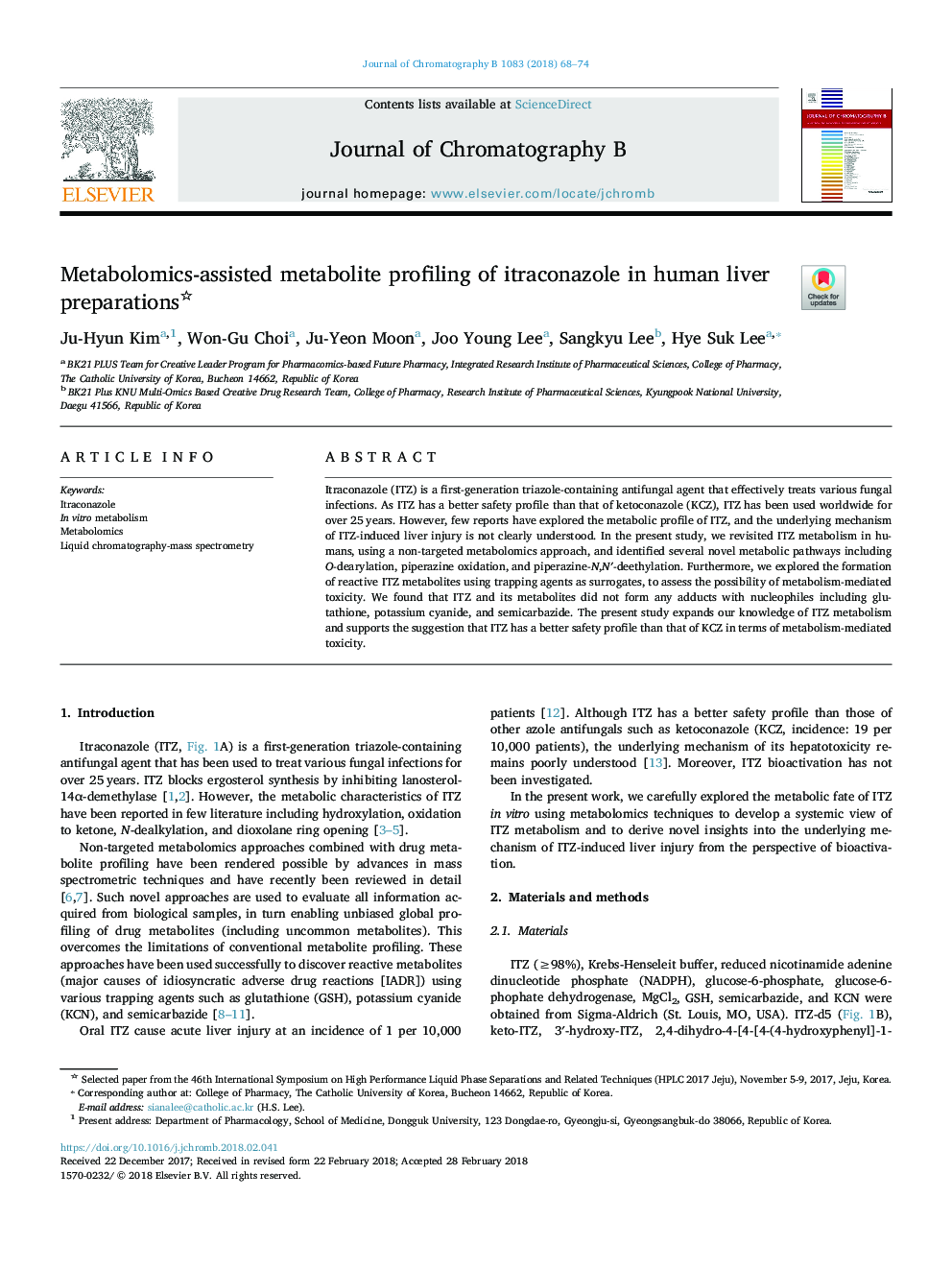| Article ID | Journal | Published Year | Pages | File Type |
|---|---|---|---|---|
| 7615190 | Journal of Chromatography B | 2018 | 7 Pages |
Abstract
Itraconazole (ITZ) is a first-generation triazole-containing antifungal agent that effectively treats various fungal infections. As ITZ has a better safety profile than that of ketoconazole (KCZ), ITZ has been used worldwide for over 25â¯years. However, few reports have explored the metabolic profile of ITZ, and the underlying mechanism of ITZ-induced liver injury is not clearly understood. In the present study, we revisited ITZ metabolism in humans, using a non-targeted metabolomics approach, and identified several novel metabolic pathways including O-dearylation, piperazine oxidation, and piperazine-N,Nâ²-deethylation. Furthermore, we explored the formation of reactive ITZ metabolites using trapping agents as surrogates, to assess the possibility of metabolism-mediated toxicity. We found that ITZ and its metabolites did not form any adducts with nucleophiles including glutathione, potassium cyanide, and semicarbazide. The present study expands our knowledge of ITZ metabolism and supports the suggestion that ITZ has a better safety profile than that of KCZ in terms of metabolism-mediated toxicity.
Related Topics
Physical Sciences and Engineering
Chemistry
Analytical Chemistry
Authors
Ju-Hyun Kim, Won-Gu Choi, Ju-Yeon Moon, Joo Young Lee, Sangkyu Lee, Hye Suk Lee,
